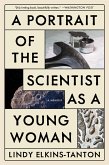The story of one of America's first professional astronomers and the changes that led to science being a male-dominated field There are a number of intellectual women from the 19th century whose crucial roles in the philosophical, social, and scientific debates that roiled the era have not been fully examined.Among them is the astronomer Maria Mitchell. Given the relative dearth of women scientists today, most of us assume that science has always been a masculine domain. But as Renée Bergland reminds us, science and humanities were not seen as separate spheres in the nineteenth century; indeed, before the Civil War, women flourished in science and mathematics, disciplines that were considered less politically threatening and less profitable than the humanities. Mitchell apprenticed with her father, an amateur astronomer; taught herself the higher math of the day; and for years regularly "swept" the clear Nantucket night sky with the telescope in her rooftop observatory. In 1847, thanks to these diligent sweeps, Mitchell discovered a comet and was catapulted to international fame. Within a few years she was one of America's first professional astronomers; as "computer of Venus"-a sort of human calculator-for the U.S. Navy's Nautical Almanac, she calculated the planet's changing position. After an intellectual tour of Europe that included a winter in Rome with Sophia and Nathaniel Hawthorne, Mitchell was invited to join the founding faculty at Vassar College, where she spent her later years mentoring the next generation of women astronomers. Tragically, opportunities for her students dried up over the next few decades as the increasingly male scientific establishment began to close ranks. Mitchell protested this cultural shift in vain. In this compulsively readable biography, Renée Bergland chronicles the ideological, academic, and economic changes that led to the original sexing of science-now so familiar that most of us have never known it any other way.
Bitte wählen Sie Ihr Anliegen aus.
Rechnungen
Retourenschein anfordern
Bestellstatus
Storno





